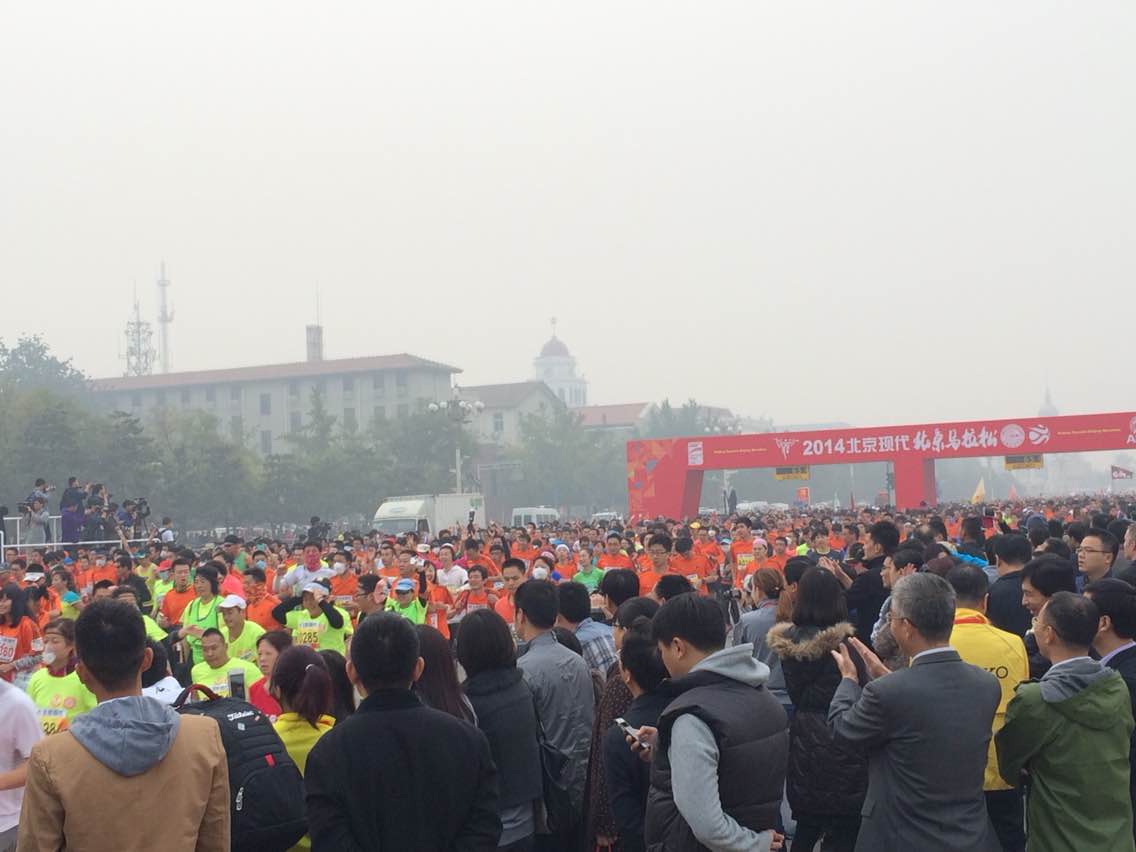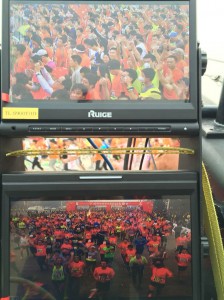As Beijing welcomes more sporting events in its city with open arms, it also finds itself dealing with an unwelcome visitor: smog.
During the 2014 Superclásico de las Américas, an annual football match between Brazil and Argentina, thousands of athletes were forced to wear pollution-filtering face masks after a toxic fog engulfed the event which took place at the Beijing National Stadium on 11 October.
“Many people came here to run, although on such a smoggy day, some people seem used to it,” said Zhong Wen, a reporter from channel China
Tian Zhao said when she first settled in Beijing last year she couldn’t handle the smog but has become gradually become used to the pollution.
“You can just simply stay indoors instead of gallivanting around,” Zhao said. “To me now, the pros of being here outweigh the pollution.” She said the government will take an initiative with the smog problem.
The smog has been around so long that most people don’t remember when it first appeared.
Ben Lee, originally from Vietnam, has lived in Beijing for seven years now and does not bother putting on a face mask anymore.
“I don’t remember when exactly the smog became serious in Beijing, now it seems everyone on the street wears masks except me, it’s not a problem for me.”
Experts suggest Beijing should learn from London, which was also affected by smog. In 1995, the government established the National Air Quality Strategy (NAQS), setting out a framework of standards and objectives for the air pollutants. With strict rules and regulations, British air quality improved and smog decreased.
“China is at a crucial stage of developing, sometimes scarifying environment for economic profits is understandable. Britain has undergone such a period, so I am confident China will also go through it one day.” said Shilei Liu, a Bournemouth University student.
The Chinese government has acknowledged the smog issue. In March, Chinese Prime Minister Li Keqiang said the government must declare a war on smog, which means “a war on inefficient and unsustainable model of growth and way of life.”
China now conducts PM(Particulate matter) 2.5 monitoring in 161 cities across the country, the most extensive scale among all the developing countries. The government set a 3.9 per cent reduction target for cutting energy intensity this year, equivalent to cutting coal burning by 22 million tones.
Smog casts a cloud over the Superclásico event
Photo by Zhong Wen









